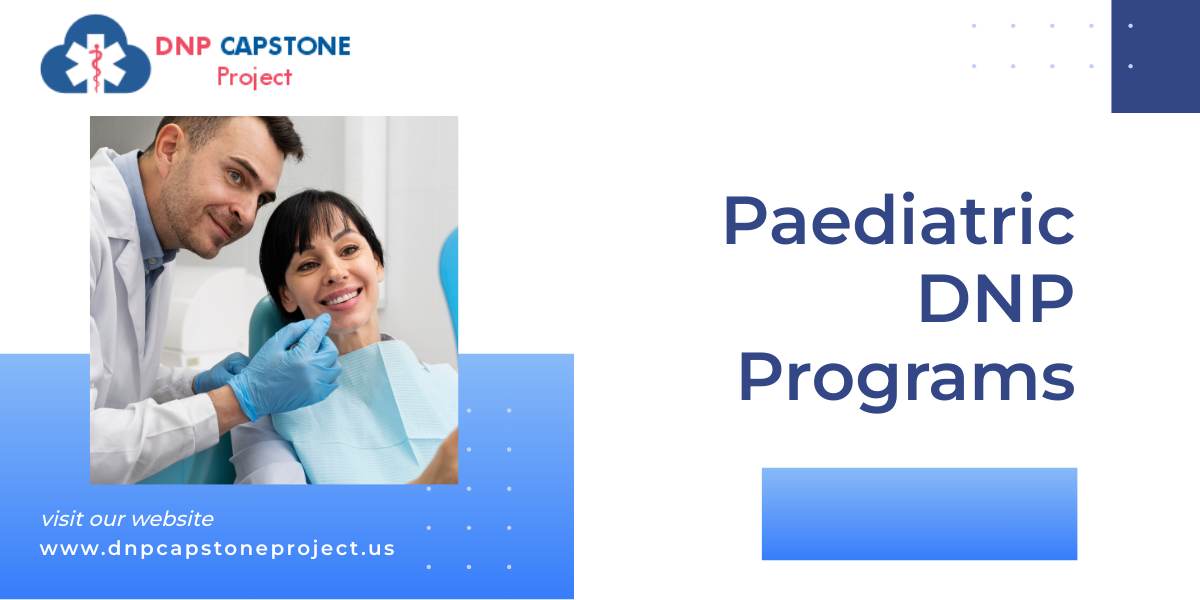Paediatric DNP Programs: A Comprehensive Guide for Future Paediatric Nurse Practitioners
If you’re passionate about paediatric care and want to become a clinical leader in nursing, a Paediatric Doctor of Nursing Practice (DNP) program might be the perfect path for you. This advanced degree prepares nurses to provide expert care to children from infancy through adolescence, combining clinical practice with leadership, research, and health policy.
We’ll explore everything you need to know about Pediatric DNP programs—from what they are to admission requirements, curriculum, career opportunities, and more.
What is a Paediatric DNP Program?
A Paediatric DNP program is a doctoral-level nursing program that prepares Registered Nurses (RNs) or Advanced Practice Registered Nurses (APRNs) to become Paediatric Nurse Practitioners (PNPs) with the highest level of clinical expertise. Unlike a Master’s degree, a DNP emphasises not just clinical practice but also systems leadership, quality improvement, and evidence-based care.
There are two main tracks within Paediatric DNP programs:
-
Paediatric Primary Care Nurse Practitioner (PPCNP-DNP): Focuses on long-term, comprehensive care in primary care settings.
-
Paediatric Acute Care Nurse Practitioner (PACNP-DNP): Prepares nurses for acute, emergency, and critical care settings.
Why Choose a DNP in Paediatrics?
Here are several reasons why a Paediatric DNP is a valuable investment:
-
Advanced Clinical Skills: DNP programs prepare you to diagnose, treat, and manage complex pediatric conditions independently.
-
Leadership Development: You’ll gain skills in healthcare leadership, making you an asset in practice transformation and policy advocacy.
-
Better Patient Outcomes: DNP-prepared nurses often lead initiatives to improve care delivery and reduce disparities.
-
Competitive Salaries: Paediatric NPs with DNPs are among the highest earners in the nursing field.
-
Job Security and Demand: The demand for paediatric NPs continues to grow due to a shortage of paediatric specialists in many areas.
Admission Requirements for Paediatric DNP Programs
Although requirements vary by institution, most Paediatric DNP programs require the following:
-
BSN or MSN degree from an accredited nursing program
-
Active RN license (some programs may also require APRN certification)
-
Minimum GPA (often 3.0 or higher)
-
Letters of recommendation
-
Personal statement or essay
-
Resume or CV
-
Interview (optional)
-
Clinical experience (especially for post-MSN applicants)
Curriculum Overview
The DNP curriculum combines advanced nursing courses with paediatric specialty training and leadership development. Core components typically include:
Core DNP Courses
-
Advanced Pathophysiology
-
Advanced Pharmacology
-
Health Assessment
-
Evidence-Based Practice
-
Healthcare Policy and Ethics
-
Population Health
-
Leadership and Organizational Systems
Paediatric Specialty Courses
-
Paediatric Growth and Development
-
Paediatric Primary or Acute Care Diagnosis and Management
-
Pediatric Clinical Practicum
DNP Project
Students complete a final scholarly project that demonstrates their ability to apply evidence-based practice to improve paediatric care outcomes.
Program Length and Format
Paediatric DNP programs typically offer flexible options:
-
BSN-to-DNP: 3–4 years full-time or 4–6 years part-time
-
MSN-to-DNP: 1–2 years depending on clinical hours and prior coursework
Many universities offer online, hybrid, or campus-based options, allowing working nurses to continue their education while balancing personal and professional responsibilities.
Certification and Licensure
After completing your Pediatric DNP program, you’ll be eligible to sit for national certification:
-
Primary Care PNP Certification (CPNP-PC) – Offered by the Pediatric Nursing Certification Board (PNCB)
-
Acute Care PNP Certification (CPNP-AC) – Also through the PNCB
Once certified, you’ll apply for state licensure as a Nurse Practitioner (NP) with prescriptive authority in most states.
Career Opportunities for Pediatric DNP Graduates
With a DNP in Paediatrics, you’ll be qualified for a wide range of roles, including:
-
Paediatric Nurse Practitioner (Primary or Acute Care)
-
Clinical Director of Paediatric Services
-
Pediatric Care Coordinator
-
Nursing Faculty or Educator
-
Policy Advocate for Child Health
-
Researcher in Paediatric Outcomes
Work settings include:
-
Pediatric clinics and hospitals
-
Children’s hospitals and ICUs
-
Primary care offices
-
School-based health centres
-
Telehealth services
-
Government and non-profit organizations
Top Schools Offering Paediatric DNP Programs (U.S.)
Here are a few top-ranked schools that offer Pediatric DNP programs:
-
University of Pennsylvania
-
Johns Hopkins University
-
University of Washington
-
Columbia University
-
University of California–San Francisco
Each of these schools offers rigorous training and excellent clinical partnerships to support student success.
Is a Paediatric DNP Right for You?
If you’re committed to child health and want to lead change in paediatric care, the DNP path may be ideal. You’ll not only become a highly skilled clinician but also a voice for children and families in policy, research, and education.
Final Thoughts
Paediatric DNP programs are more than just an academic achievement—they’re a gateway to meaningful, impactful, and in-demand careers in healthcare. Whether you’re at the start of your nursing journey or ready to take the next step, exploring DNP options could be your next best move.



